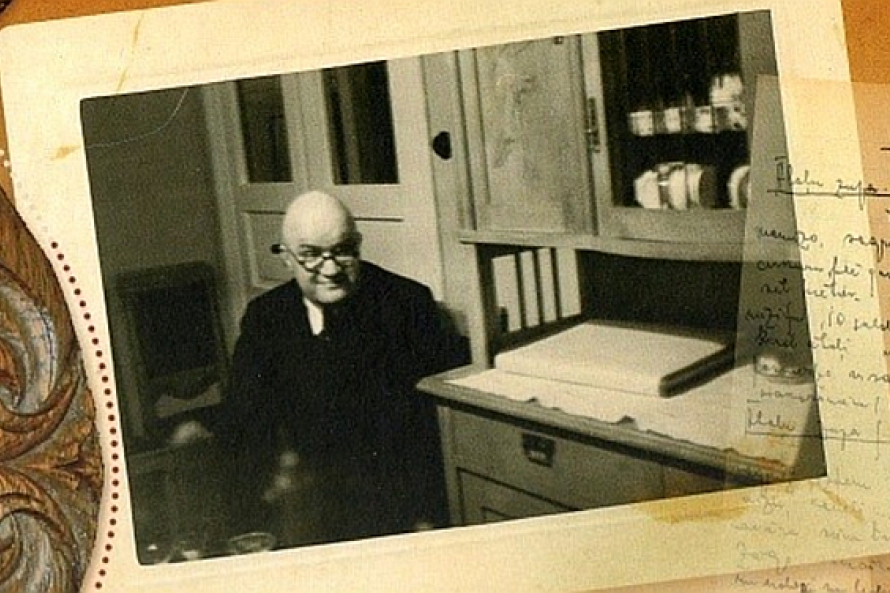Admittedly, at just 28 pages the publication is more of a pamphlet than a tome, but the limited format still manages to give some idea of his genius, including fifteen of his best-known poems under the title “To The City”, in a new collection produced by the Jumava publishing house.
Crammed into the small flat on Lacplesa street (around the corner from Caka street bearing his name) that now serves as his memorial museum, a host of Latvia's literary establishment paid tribute to Čaks at the launch event and tried to explain how his enduring appeal among Latvian and Russian audiences is finding a wider international audience. The new collection is available in seven languages: Latvian, English, German, French, Spanish, Russian and Swedish.
One of the guiding lights of the project, Andra Konste of the Ventspils Writers' House told LSM: “There will be a lot of foreign visitors in Riga this year – what better present could we give them than Čaks' poetry?”
Different nationalities and different translators react in different ways to Čaks, but all seem to discover his work above all other writers' during their time in Latvia, Konste said.
While Spanish translators wrestled with the text with a bottle of wine and a fiery debate, the English translator asked for help researching exactly what type of streetlight the poet would have been referring to in his poems of the 1930s, according to Konste.
But if the new translations can communicate only a fraction of the reverence Latvian audiences have for Čaks, the project will have been a success.
“Čaks has always been very important, particularly for young poets and the influence he has on them,” says Janis Oga of the Mansards publishing house and the Latvian Literature Center.
“He's realistic but at the same time modern and expressionistic. During Soviet times he was almost banned and was always threatened by the powers because of his work "Mūžības skartie" (By eternity touched) {about the Latvian riflemen's defense of Riga in 1915-1916}. Later he tried to be a 'Soviet poet' but he wasn't successful in that role and his last two collections are unreadable, to be honest. But despite this, somehow he still has this very unique place in Latvian hearts.”
A complex figure born in Riga in 1901, Čaks' poetry is notable for its urban setting and modernity which gave it a strong contrast with the established pastoral and folkloric traditions in Latvian literature.
His poems often crop up in unexpected places, having inspired a musical, a cookery book and even a 2010 Georgian translation of "Mūžības skartie" that was handed out to troops during the Georgia-Russia conflict in order to inspire patriotic feelings.
“In Latvian and Russian, Čaks has never died, and now he will live on in other languages too,” said Juris Visockis, director the Jumava publishing house.



























